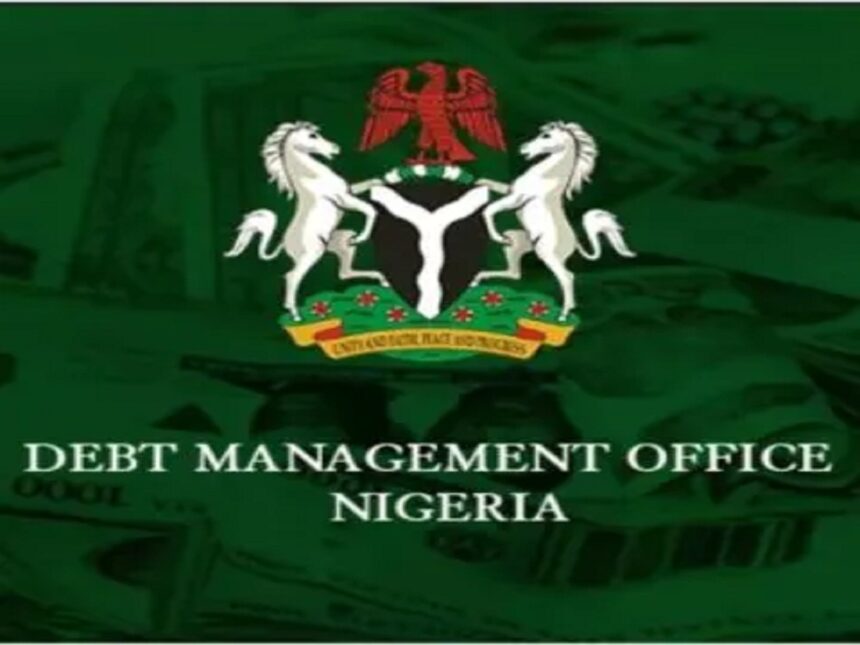Nigeria’s total public debt has reached N149.39 trillion ($97.24 billion) as of March 31, 2025, according to a report released by the Debt Management Office (DMO) on Friday.
This figure represents a significant year-on-year increase of N27.72 trillion (22.8%) compared to the N121.67 trillion recorded in the first quarter of 2024.
The DMO’s report also indicates a quarter-on-quarter increase of N4.72 trillion (3.3%) from the N144.67 trillion reported at the end of December 31, 2024.
This persistent rise in the debt stock is primarily attributed to two factors: new borrowings undertaken by the Federal Government and the ongoing depreciation of the naira against major international currencies.
The weakening naira significantly inflates the local currency value of external loans, even if the dollar-denominated debt increases only marginally.
External Debt
Nigeria’s external debt stood at N70.63 trillion ($45.98 billion) by the end of Q1 2025, a substantial increase from N56.02 trillion ($42.12 billion) in the corresponding period of 2024.
This translates to a year-on-year rise of N14.61 trillion (26.1%). In quarter-on-quarter terms, external debt saw a marginal increase of N344 billion (0.5%) from N70.29 trillion in December 2024.
While the actual increase in dollar terms was only $3.86 billion year-on-year, the significant depreciation of the naira amplified this growth when converted to local currency. For context, the Central Bank of Nigeria (CBN) used an exchange rate of N1,330.26/$1 to convert external debt in Q1 2024. Although the exact rate used for Q1 2025 was not disclosed by the DMO, the higher naira value clearly points to a weaker exchange rate, underscoring the impact of currency volatility on debt figures.
Nigeria’s external borrowings primarily consist of loans from multilateral lenders like the World Bank and African Development Bank, bilateral arrangements, and commercial debt instruments such as Eurobonds. The increased debt servicing costs, largely driven by naira depreciation, are raising concerns about the growing strain on government finances as the country grapples with improving foreign exchange liquidity and stabilizing its currency.
Domestic DebtOn the domestic front, Nigeria’s debt stock climbed to N78.76 trillion ($51.26 billion) in March 2025, up from N65.65 trillion ($49.35 billion) a year earlier. This represents a year-on-year increase of N13.11 trillion (20%). Compared to Q4 2024, domestic debt rose by N4.38 trillion (5.9%) from N74.38 trillion.
Of the total domestic debt, the Federal Government accounted for the lion’s share at N74.89 trillion, while subnational governments and the Federal Capital Territory (FCT) held N3.87 trillion. This marks a slight decline in state-level domestic debt from N3.97 trillion in the previous quarter and N4.07 trillion in Q1 2024, which could indicate improved debt servicing or a slowdown in new borrowings by states.
Domestic debt comprises instruments such as Federal Government Bonds, Treasury Bills, Sukuk, and Green Bonds. These instruments are primarily used to finance the fiscal deficit and are less vulnerable to exchange rate fluctuations, though they come with interest cost implications and can potentially crowd out private sector access to credit.
Debt Structure Shift
The overall structure of Nigeria’s debt portfolio has seen a slight shift. As of March 2025, domestic debt constituted 52.7% of the total, while external debt accounted for 47.3%.
This contrasts with March 2024, when domestic debt had a higher share of 54% and external debt was 46%.
READ MORE FROM: NIGERIAN TRIBUNE
WATCH TOP VIDEOS FROM NIGERIAN TRIBUNE TV
- Let’s Talk About SELF-AWARENESS
- Is Your Confidence Mistaken for Pride? Let’s talk about it
- Is Etiquette About Perfection…Or Just Not Being Rude?
- Top Psychologist Reveal 3 Signs You’re Struggling With Imposter Syndrome
- Do You Pick Up Work-Related Calls at Midnight or Never? Let’s Talk About Boundaries







